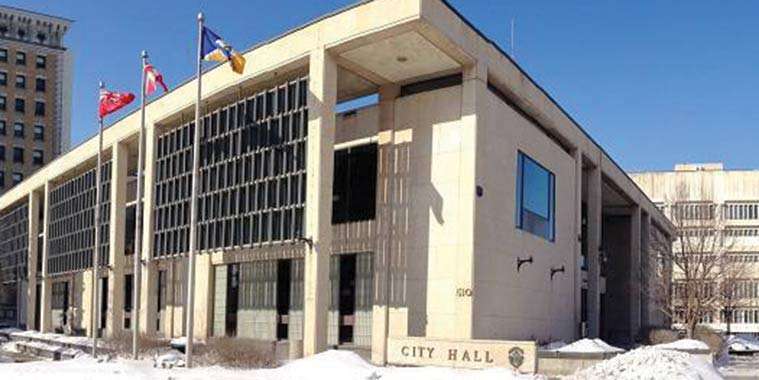by Peter Squire
After delays and concerns were publicly expressed by Mayor Bowman with respect to seeking certainty on provincial funding earmarked for the City of Winnipeg, the preliminary 2019 Operating and Capital Budgets for the City of Winnipeg were released on Friday, March 1, 2019.
“This has been a challenging budget year considering continued demand for high quality services, the need to improve the city’s efficiency and control costs, as well as uncertainty surrounding provincial funding,” said Councillor Scott Gillingham, Chair of the Standing Committee on Finance for the City of Winnipeg. “However, I am confident the preliminary budget coming forward for public review as well as Council’s consideration will be balanced and reflect Winnipeggers’ priorities.”
March is also the month where provincial and federal budgets will be released with the provincial one rolling out Thursday, March 7th and the federal governments on Tuesday, March 19th.
From a real estate perspective, WinnipegREALTORS® are interested to learn how the City of Winnipeg’s budget addresses the possibility that property taxes may increase higher than the current position of a proposed 2.33% increase. If the mayor and city council feel provincial funding they were counting on is not forthcoming, we are interested on how this will be resolved.
While no direct hints on what the March 7th provincial budget will contain, WinnipegREALTORS® got a chance to hear from provincial Finance Minister Scott Fielding at its Annual Forecast Breakfast February 6, 2018. One message was loud and clear — the provincial government’s laser focus is on tackling Manitoba’s large deficit. They are having some success in this regard with the 2017/18 deficit coming in $145 million better than the 2017 Budget. As was presented by Minister Fielding, taxpayer dollars spent servicing debt is money not invested in health care, education, social services and infrastructure.
Of keen interest to professional REALTORS® at the provincial level, is if first-time buyers finally see some tax relief by way of the provincial government introducing a tax credit similar to the federal government’s to help them buy a home. We don’t anticipate it, but it shouldn’t be ruled out as the introduction of two federal government mortgage stress tests in the last few years has had a disproportionate impact on first-time buyers locally and across the country. For example, in 2018, single family home sales from $150,000 t0 $299,999, where many purchases involve first-time buyers, were down 10% in comparison to 2017 and 19% in comparison to 2016. Sales over $300,000 in 2018 were virtually the same as the previous two years.
WinnipegREALTORS® has always stated the first-time buyer segment contributes to growth in the real estate market and in building community. Not only for its sheer volume in activity which can often is make up one out of every three purchases in a given year, but there the domino effect. It allows first-time sellers and other home owners to move on with their home buying plans which can ultimately climb up the housing ladder to the purchase of a newly constructed home.
One of the saving graces for our local market in respect to the mortgage stress test is we have far more affordable house prices to choose from in comparison to more expensive markets such as Toronto. This advantage provides even first-time buyers with an opportunity to consider more affordable options for homeownership even if their first option is not possible. Working with a Realtor and mortgage broker will help them realize what can still be achieved under more stringent mortgage qualification requirements. Despite some interest rate increases in 2017 and 2018, 5- year term rates, as posted in the Winnipeg Real Estate News, are very favourable with some as low as 3.49%.
On March 19th, there may be a better chance than Realtors, mortgage lenders and builders have heard in recent years that federal Finance Minister Bill Morneau may bring in first-time homebuyer help given how difficult the mortgage stress test hurdle has been on first-time buyers. Morneau has publicly stated this year’s budget will have something in it to help younger homebuyers afford a home.
As to what that may be is still conjecture of course. One that may be implemented, given it already exists for conventional mortgages with a down payment of 20% down, is extending the amortization period from 25 to 30 years for insured mortgages where most first-time buyers rely on.
CREA has been advocating for increasing the very successful home buyers plan where it currently allows first-time buyers to individually take up to $25,000 of their RRSPs to put towards a down payment on the purchase of a home. Given house price increases over the last few years and inflation alone, CREA is recommending the limit be moved up to a maximum of $40,000.
As mentioned earlier in respect to the province of Manitoba potentially providing first-time buyer tax credit relief in its budget to help first-time buyers overcome closing costs such as Manitoba’s land transfer tax, CREA is also pushing for the federal government to increase its tax credit for first-time buyers from $750 to $2,500.
And speaking of the current federal stress test which requires everyone to qualify for a mortgage two percentage points higher than a negotiated borrowing rate, some like Mortgage Professionals Canada (MPC) are calling on the federal government to reduce their qualifying rate. MPC says all borrowers, not just first-time buyers, should be able to qualify at a rate 0.75 per cent above the contracted rate.
Others like Phil Soper, CEO of Royal LePage, want to see the stress test lowered by a full percentage point for first-time buyers.
A theme for Realtors is to call on all levels of government to open the door for first-time buyers to realize their dream of home ownership. It makes infinite economic sense. For the average house transaction in Canada for the period between 2014 and 2016, a total of $61,600 on ancillary spending was created. This represents more than $31 billion per year through Canadian MLS® Systems – a significant contribution to the Canadian economy.
The projected economic spin-off for Manitoba home sales in 2019 is $765 million.



